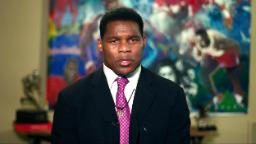But that “great American story” also doesn’t include … protest.
Walker said the above words on a night that featured speakers intent on downplaying the idea that Trump is a racist. Necessary maneuvering, given how the President has responded to a season shaped by Black Lives Matter demonstrations.
Indeed, Walker took a thinly veiled swipe at the protests that, in some ways, have defined sports over the past few years. But like other detractors, he warped the situation — and even ignored history.
As a whole, athletes aren’t protesting the flag. Nor are they protesting “The Star-Spangled Banner.” Rather, they’re protesting police brutality against Black Americans — how racism can take easy refuge in a system that too often fails to hold officers accountable for the racial violence they inflict.
Evidently, Walker and his ilk are aggrieved more by players’ support for racial justice or by being called a racist than by the at times dangerous behavior of agents of the state, and thus level slippery accusations of disrespect.
But athletes know that their dissent is in service of something tactile, urgent: There are bodies in the street.
Recall the 1968 Olympics. When the sprinters Tommie Smith and John Carlos climbed the podium to claim their gold and bronze medals, respectively, the national anthem blasting in the background, each lowered his head and raised a black-gloved fist in the air.
Seen as a Black Power salute, Smith and Carlos’ actions resulted in one of the most famous images to come out of an era of massive social and political change.
Unsurprisingly, a James Baldwin quote is as neat a distillation of the protests among athletes, and as pithy a rebuttal to Walker’s Monday remarks, as might be possible.
“I love America more than any other country in this world, and, exactly for this reason, I insist on the right to criticize her perpetually,” Baldwin writes in “Notes of a Native Son,” his 1955 collection of essays on race at home and abroad.
The ongoing demonstrations aren’t signs of disrespect. They reveal a deep-seated belief in the possibility of progress — in the idea that America’s reality can be brought in line with its supposed values.
